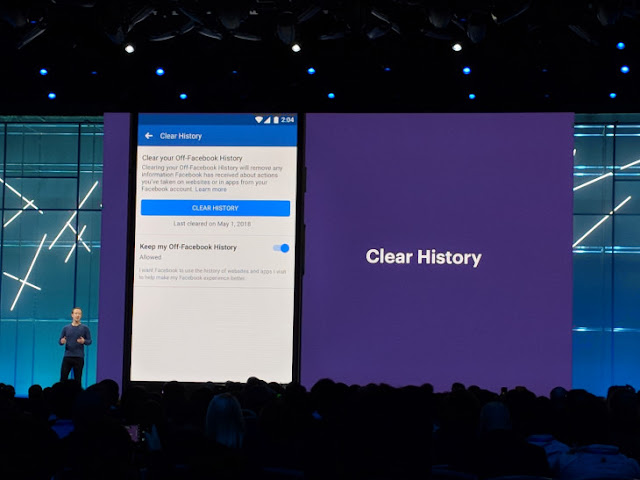It's
not simply that digital dangers are everywhere in the mobile age. It's also
that the internet never goes to sleep or stops demanding our attention. This is
particularly challenging for kids armed
with smartphones and
disappearing-message apps, who may really believe that their next text, tweet
or viral video cannot wait until tomorrow.
Parental-control apps for smartphones can also help kids understand the value of limits in a digital world while preventing them from accessing adult content or texting with strangers.
No one parental-control service is
perfect, but our testing found that Norton
Family Premier ($49.99
on Norton) delivered the best mix of web
filtering, location tracking and app management, particularly on
Android devices. (The iPhone version of Norton Family Premier was limited by
comparison, but still offered just enough web filtering to make it worthwhile.)
Norton's parental-control app beat
out PhoneSheriff ($89 a year), which is a good
alternative on Android, particularly for monitoring texting. Parents with many
kids to manage might appreciate the simple setup of ESET Parental Control for Android ($30 a year), which lets you control an unlimited number of
devices.
Norton and ESET also make antivirus
software, and many antivirus products have parental controls built in. To see
how well those controls stack up against the stand-alone services, please read The
Best (and Worst) Antivirus Software for Parents.
How We Tested and Rated
Evaluation Criteria
We focused our testing on apps
that emphasize setting up filters and limits before your child uses the phone,
instead of merely tracking activities after the fact. In evaluating these products,
we took the following criteria into account:
·
Installation: How easy is it to install and
configure each app on a smartphone?
·
App Management: Since most of the time spent on
smartphones is within an app, not a browser, which program lets the parent
review all the apps on a child's device and block or limit app usage?
·
Filtering: Which tools does each app
offer, and how well do those tools restrict kids' access to inappropriate
content online?
·
Texting Management: With kids doing most of their
communicating through text messages, we looked at the features for monitoring
messaging. Do the apps let you review the content of your child's texts? Can
you block a contact and be alerted when your child adds a new contact? Can you
block messaging apps altogether?
·
Location tracking: Does the app keep a log of
where your child has been and, more importantly, give you the ability to locate
your child in an emergency?
·
Price: How much does the service cost
annually? How many devices can you monitor or control?
We also looked into whether these services let
parents monitor kids' activities on social media, although in most cases, the
features we found were pretty limited. You either need to "root" a
device — which we do not recommend — or have your child hand over his or her
username and password.
We tested each Android and iOS app twice, from
installation to testing to uninstall. We monitored activity and managed
settings on a MacBook Pro, and used both iOS and Android phones to send texts
or call the Android device we were monitoring.
Both Norton Family Premier and Qustodio for
Families Premium feature iOS versions, which we tested and rated separately
from their Android counterparts. Apple imposes limits on what third-party apps
are able to control, and while some of those restrictions have been eased in
recent iOS updates, the Android
platform still enables far more robust parental monitoring controls.
None of the services tested for iPhone were
able to effectively limit how much time a child could spend on their iPhone; we
also couldn't monitor texts or block specific contacts. You can monitor more on
the iPhone than you could a couple of years ago, but Android remains a better
platform if you want more control over how your children are using their mobile
devices. Parents of kids with iOS devices would be well-advised to familiarize
themselves with the parental-control
options available in iOS 10's Settings app.
What
We Didn't Include
Parental-control apps for mobile devices work
best when they're part of a comprehensive approach to teaching your kids about
behaving responsibly online. That means talking to your kids about what they should and shouldn't
do with their mobile devices, clearly communicating how you expect
them to act and making clear that you will be monitoring what they do with
their phones.
For that reason, we avoided
testing apps that run only in stealth mode on a child's phone.
Products such as WebWatcher and mSpy both tout this capability, but we're aware
that some people use such services to spy not on their children, but on their
spouses or on other adults, which is illegal in most U.S. jurisdictions.
Both PhoneSheriff and Mobile Spy allow the installer to turn off user
notifications and remove the app icon from the list of installed apps, leaving
the phone user generally unaware that he or she is being monitored. Neither app
is offered in the official Google Play Store for Android apps, meaning that
users will have to "sideload" them, a practice that we do not
recommend for security reasons.
Both PhoneSheriff and Mobile
Spy have reportedly been used by
jealous spouses or lovers to spy on adults, although we have not been able to
confirm that. However, both apps will still show up in the apps list in system
settings; adults worried that they are being spied upon should check that menu.
We also did not consider apps
that offered the ability to record phone conversations, because state laws vary
on the legality of recording someone without his or her consent.








No comments:
Post a Comment